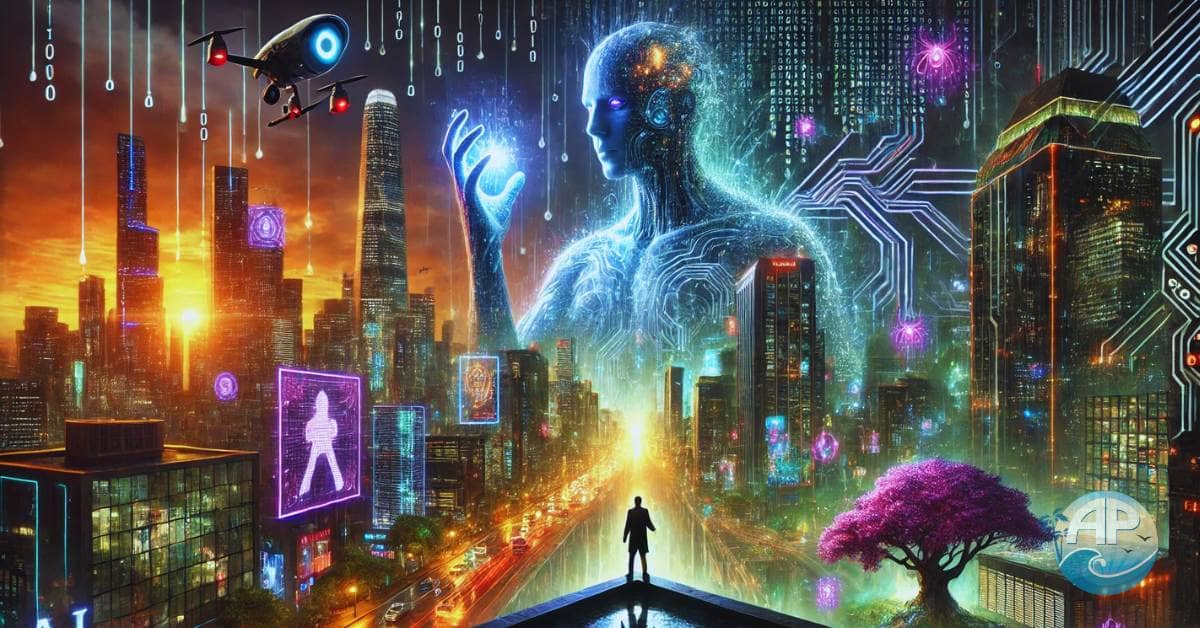Unmasking the Agenda Behind AI—How It Shapes Our Freedom and Future
Table of Contents
- Introduction to AI’s Motivations
- What Drives the AI Revolution?
- How AI Shapes Personal Freedom
- Who Benefits from AI?
- Ethical Concerns with AI
- Staying Ahead in AI’s World
- Conclusion on AI’s Motivations
Introduction to AI’s Motivations
What’s the real story behind artificial intelligence? From awe-inspiring breakthroughs to whispers of control, AI’s hidden motivations often go unquestioned. But AI’s Hidden Motivations aren’t just about coding or machine learning. They’re about power, influence, and who stands to gain the most.
Today, we’re peeling back the layers to explore this complex web. Who’s driving the AI revolution? Is it liberating humanity, or subtly shaping a future of dependence and surveillance?
Let’s dive into AI’s true purpose and discover who really benefits from this rapidly evolving technology.
What Drives the AI Revolution?
Artificial Intelligence is everywhere—in your pocket, your home, even your workplace. But have you ever wondered: why now? Why is AI advancing at breakneck speed, and who’s fueling this rapid evolution?
AI’s Corporate Gold Rush
Tech giants like Google, Microsoft, and OpenAI are at the forefront, pouring billions into AI. But let’s be clear: their motivation isn’t purely altruistic. AI’s hidden motivations often align with:
- Profit Maximization: Algorithms collect data to create hyper-targeted ads.
- Market Domination: AI tools lock users into ecosystems like Amazon Alexa or Apple’s Siri.
- Behavior Manipulation: Predictive AI nudges user decisions, shaping everything from purchases to political views.
While innovation is exciting, the question remains: Are we consumers, or are we the product?
Governments and AI Control
Governments worldwide see AI as a powerful tool for surveillance and control. From social credit systems in China to advanced facial recognition in Western democracies, AI’s hidden motivations often tie into:
- Monitoring citizens’ behavior
- Predicting dissent
- Controlling narratives
As George Orwell once said: “Big Brother is watching you.” With AI, Big Brother doesn’t just watch, it learns, predicts, and influences.
Related Read: Intentionally Concealed Agendas: How They’re Hiding in Plain Sight
How AI Shapes Personal Freedom
AI promises convenience, but at what cost? Let’s explore how it affects your freedom.
AI’s Illusion of Choice
Personalized recommendations on Netflix or Spotify feel liberating. But are they? Behind the scenes, AI narrows your options, steering you toward specific outcomes. This is known as algorithmic nudging, and it subtly reduces your autonomy.
- AI recommends what to watch.
- AI suggests what to buy.
- AI decides what news you see.
In short: freedom is replaced by guided choices.
Dependence on AI Technologies
AI tools like ChatGPT or automated assistants simplify life, but they also create reliance. Imagine a day without GPS, voice assistants, or predictive text. This dependence raises questions:
- Are we losing critical thinking skills?
- Is convenience eroding self-reliance?
Related Read: The Puppets Are Playing Us: Wake Up to the Global Circus
AI Surveillance and Freedom
From social media to smart homes, AI collects vast amounts of data. But who’s watching? The rise of AI-powered surveillance poses threats to:
- Privacy: Data breaches and misuse.
- Freedom of Expression: Fear of being monitored may silence dissent.
- Anonymity: Facial recognition erodes your ability to move unnoticed.
As Edward Snowden said: “Privacy isn’t about hiding something; it’s about protecting yourself.”
Who Benefits from AI?
So, who really benefits? Spoiler alert: It’s not you.
Elites Profiting from AI
Corporations and governments are leveraging AI to consolidate power. From monopolizing industries to influencing elections, they stand to gain the most.
Technocrats’ AI Agenda
AI developers, researchers, and tech CEOs are building a world where they set the rules. The result? A concentration of wealth and influence in the hands of a few.
Systemic Bias in AI Tools
AI perpetuates the system by:
- Normalizing surveillance.
- Encouraging consumerism.
- Suppressing dissent through algorithmic bias.
Related Read: Stop Playing Their Game: The True Path to Freedom
Ethical Concerns About AI’s Role
As AI becomes more ingrained in our lives, ethical concerns grow:
- Bias in Algorithms: AI often reflects the prejudices of its creators.
- Job Displacement: Automation threatens millions of jobs.
- Control vs. Empowerment: Will AI serve humanity, or enslave it?
Can We Trust AI’s Intentions?
The answer lies in transparency and accountability. But until tech giants and governments prioritize ethics over profits, skepticism remains essential.
Staying Ahead of AI’s Influence
AI’s hidden motivations may feel overwhelming, but knowledge is power. Here’s how to navigate this brave new world:
- Educate Yourself: Learn about AI’s capabilities and limitations.
- Prioritize Privacy: Use tools like VPNs and encrypted messaging.
- Diversify Skills: Focus on creative, emotional, and strategic thinking—areas where humans excel over AI.
- Stay Informed: Follow thought leaders who challenge the status quo.
Related Read: Silence is Complicity: The Moral Cost of Staying Quiet
Conclusion on AI’s Motivations
AI’s Hidden Motivations: Who Really Benefits? Artificial Intelligence is transforming our world, but it’s crucial to question AI’s Hidden Motivations. Who benefits, who loses, and what does this mean for personal freedom?
As we embrace AI, let’s ensure it serves humanity—not the other way around. Stay curious, stay critical, and never stop asking the hard questions. The future isn’t set in stone—it’s ours to shape.
Want to connect with like-minded individuals exploring these critical topics? Check out The Out Thinkers and join the conversation!
What do you think? Are we heading toward liberation or control? Let’s discuss in the comments below.




